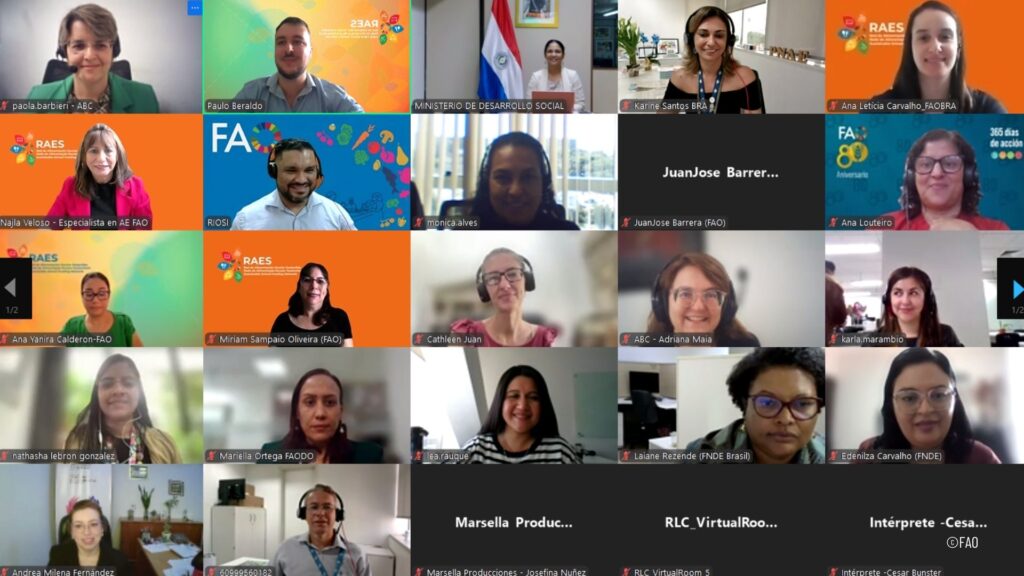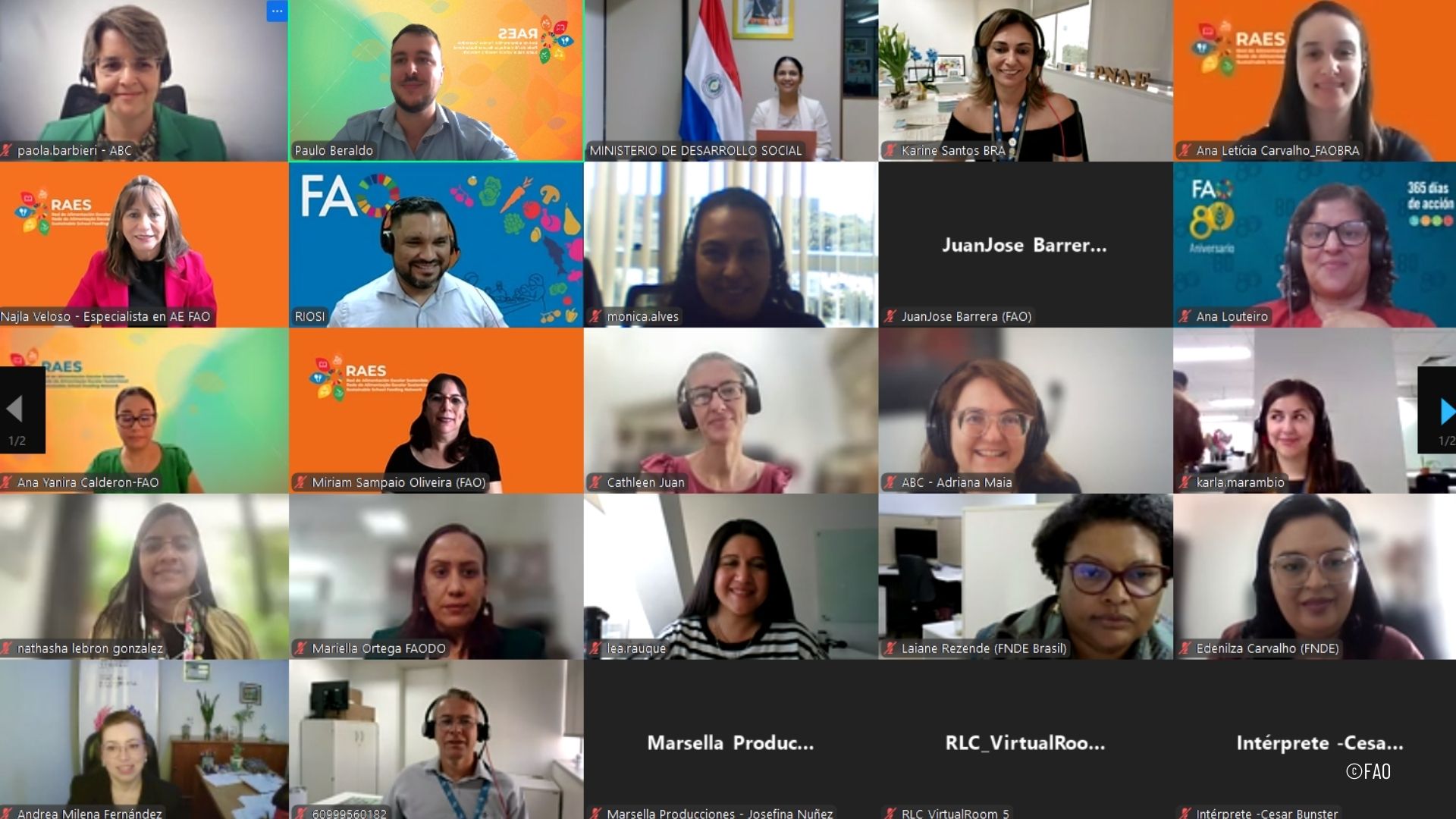The results were presented to focal points and representatives of the governments; the findings will guide future regional actions with the support of the Sustainable School Feeding Network (RAES).
Paulo Beraldo and Palova Brito
Brasília, Brazil, April 16, 2025 – The Sustainable School Feeding Network (RAES) presented the results of the study “Analysis of Indicators of Progress in School Feeding Programmes” (AMPAE), focused on six countries in Latin America and the Caribbean: Belize, Brazil, Chile, Colombia, Dominican Republic and Paraguay.
RAES is a trilateral South-South cooperation initiative developed by the Brazilian Cooperation Agency of the Ministry of Foreign Affairs (ABC/MRE), the National Fund for Educational Development (FNDE/MEC), and the Food and Agriculture Organization of the United Nations (FAO), which acts as the executive secretariat of this network.
The main objectives of the study were: i) to present evidence on issues and actions of school feeding programmes (SFP) in the region that require greater attention from national-level managers and other stakeholders at the regional and global levels; ii) to design and apply a diagnostic tool with indicators to analyze the results and progress of each country; and iii) to establish recommendations to guide RAES’s technical support activities.
The report, which will be published this year, presents analyses based on four key areas: governance, legal frameworks, food and nutrition, and financing. The best results were recorded in the governance area, while the food and nutrition area received the lowest score, highlighting the need for prioritized attention to improve the implementation of the SFP. The study also emphasized the importance of increasing funding and strengthening food and nutrition education actions, as well as the infrastructure of kitchens, storage areas, and cafeterias.
Furthermore, the results of this study will contribute to the development of a regional agenda and will support future actions, such as the launch of a training course for school feeding professionals, scheduled for 2025. At the presentation meeting, Paola Barbieri, project analyst at ABC, stated that AMPAE marks a milestone with solid results that highlight both challenges and opportunities. “This study will serve as the basis for our regional agenda and, from a global perspective, also has much to offer other countries.”

Najla Veloso, executive secretary of RAES, highlighted that the study will allow for the replication of its methodology. “The AMPAE study is a concrete contribution to the development of school feeding programmes in Latin America and the Caribbean, and perhaps in other continents as well. It allowed us to reflect, monitor, and evaluate progress, as well as to highlight areas that require more attention in the implementation of these programmes,” she stated.
Veloso emphasized that the study conducted by RAES can play a key role in raising awareness among authorities, securing funding, producing evidence, strengthening partnerships, providing technical assistance, and promoting exchanges and training. “It is a study based on concrete information provided by these countries, which serve more than 60% of students in our region.”
Comments from the countries
Karine Santos, coordinator of Brazil’s National School Feeding Program (PNAE), emphasized the importance of having a clear understanding of the level of development in each area. “It’s essential to understand where we are in a public policy that’s already 70 years old. The results are extremely rich and allow us to see the next path forward.”
Reveca Chávez, General Director of Development Planning at the Ministry of Social Development of Paraguay, described the document as a “valuable diagnostic tool,” as it provides certified national and regional evidence. “Participating allowed us to identify our progress and reflect on what still needs improvement as a country and as a region. It facilitates dialogue with national authorities.”
From the Dominican Republic, Yenny Isaura Aristy Melo, head of the Nutritional Evaluation Division at the National Institute for Student Welfare (INABIE), stated that AMPAE “provides clear and updated evidence on the impact, challenges, and opportunities for improvement in the implementation of our programmes.” She congratulated the team responsible and assured that the findings would be of great use in strengthening school feeding in the country.
From Belize, Juan Cathleen, coordinator of the school feeding programme, expressed that the study “is very useful”. “It shows us where more developed programmes are heading and helps us understand that we share regional challenges that we can face together.”
Karla Marambio Cruces, from Chile’s National Board of School Aid and Scholarships (JUNAEB), noted that the study is key to the development of Chile’s school feeding programme, including the drafting of its future law. “It’s also important to understand the regional context. We want to continue participating in initiatives like this.”
FAO’s Nutrition Officer, Israel Ríos, talked about RAES’s role in producing such evidence through a collaborative network, and that AMPAE delivers key messages that can facilitate high-level dialogue with authorities from various institutions such as deputy ministers, ministers, and presidents, by highlighting the main challenges facing school feeding in the region.







